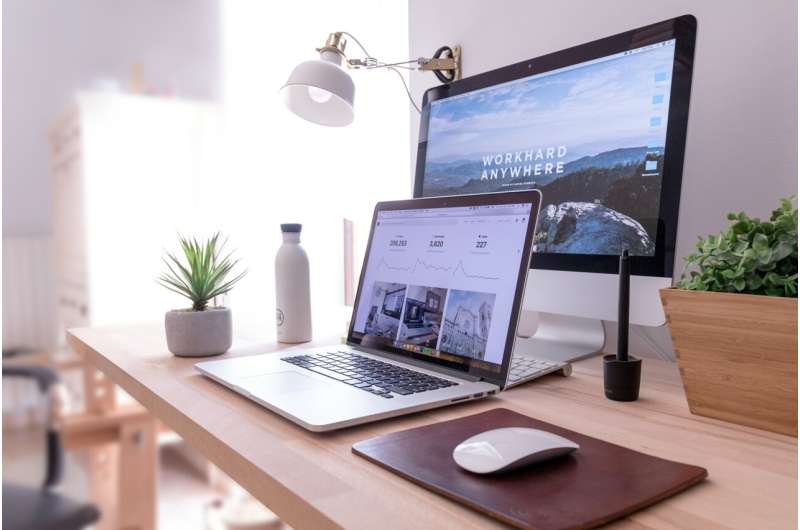This article has been reviewed according to Science X's editorial process and policies. Editors have highlighted the following attributes while ensuring the content's credibility:
fact-checked
peer-reviewed publication
trusted source
proofread
Dutch survey study links air ventilation and other factors to work-from-home success

In a new survey study, Dutch employees who worked from home tended to report higher levels of productivity and less burnout if they were more satisfied with their home office setup. The study also linked more air ventilation in the home office to higher self-reported productivity.
Martijn Stroom and colleagues at Maastricht University in the Netherlands report these findings in the open-access journal PLOS ONE on August 7, 2024.
In recent years, thanks in large part to the COVID-19 pandemic and technological advancements, working from home has become the "new normal" for many workers who otherwise would have worked in offices. Researchers are increasingly exploring factors that may influence job satisfaction and productivity among employees who work from home, such as whether a particular job is well-suited for remote work.
However, few studies have looked at potential links between productivity, job satisfaction, and the physical home office environment.
To address this knowledge gap, Stroom and colleagues surveyed 1,002 Dutch at-home workers about various characteristics of their home offices, as well as about their productivity, job satisfaction, and related measures. They applied statistical tools known as logistic regressions and structural equation models to identify links between the various factors.
The analysis showed that workers who had higher levels of satisfaction with their home office setup—including both environmental factors such as temperature and noise, as well as hardware items such as office chairs and screens—tended to have higher self-reported productivity and a lower propensity towards professional burnout.
The researchers also found that a higher level of air ventilation in the home office during the workday was statistically linked with higher productivity, greater willingness to continue working from home in the future, and lower propensity to burnout. This finding is in line with prior research linking air quality to workplace productivity.
Moreover, they found a distinct discrepancy between the amount of ventilation and the most closely related self-reported satisfaction scores of indoor air rates, bringing to light the shortcomings of heavily relying on these self-reported scores, which have been the basis for most literature and policy.
On the basis of their findings, the researchers suggest that investment in home-office hardware and environmental factors—supported by objective measurements of the indoor climate—could help ensure the future success of work-from-home policies. Meanwhile, additional research could help clarify any causal relationships between the factors explored in this study.
The authors add, "The physical climate of the home office plays a key role in work-from-home productivity. Different home offices are likely to lead to different willingness to work from home and work-from-home success."
More information: Does working from home work? That depends on the home, PLoS ONE (2024). DOI: 10.1371/journal.pone.0306475
Journal information: PLoS ONE
Provided by Public Library of Science




















